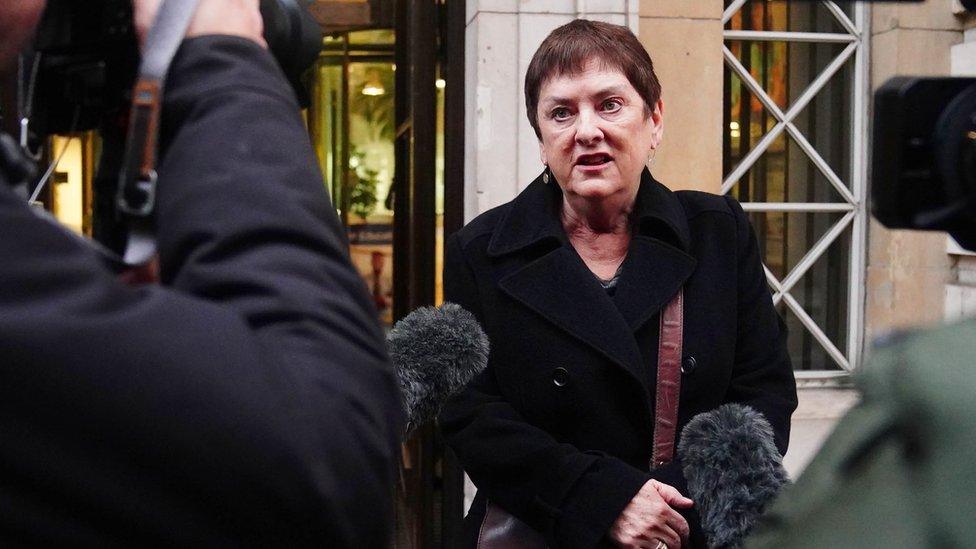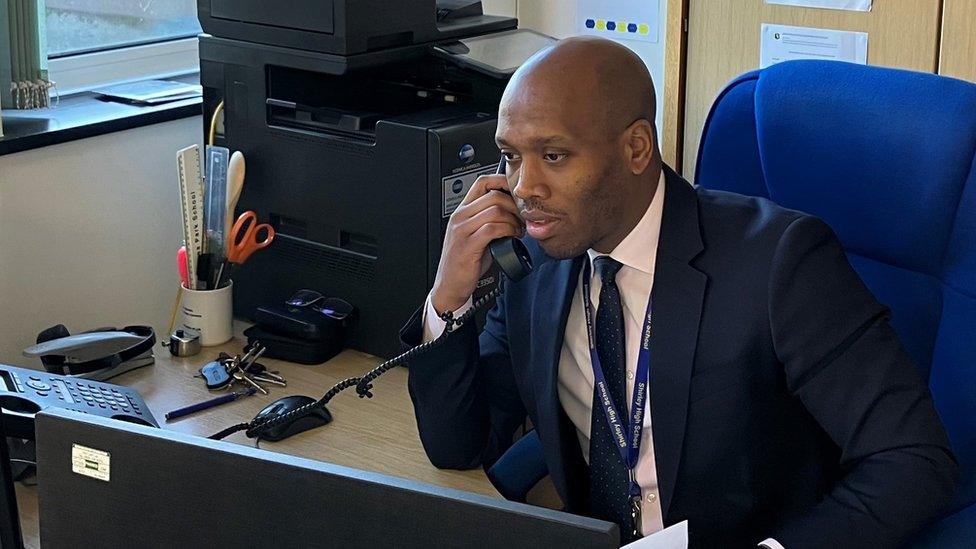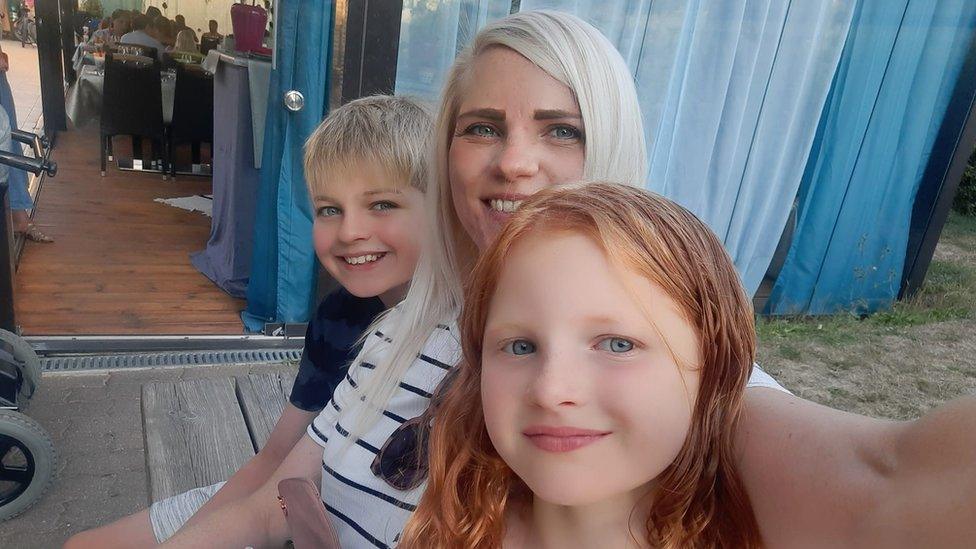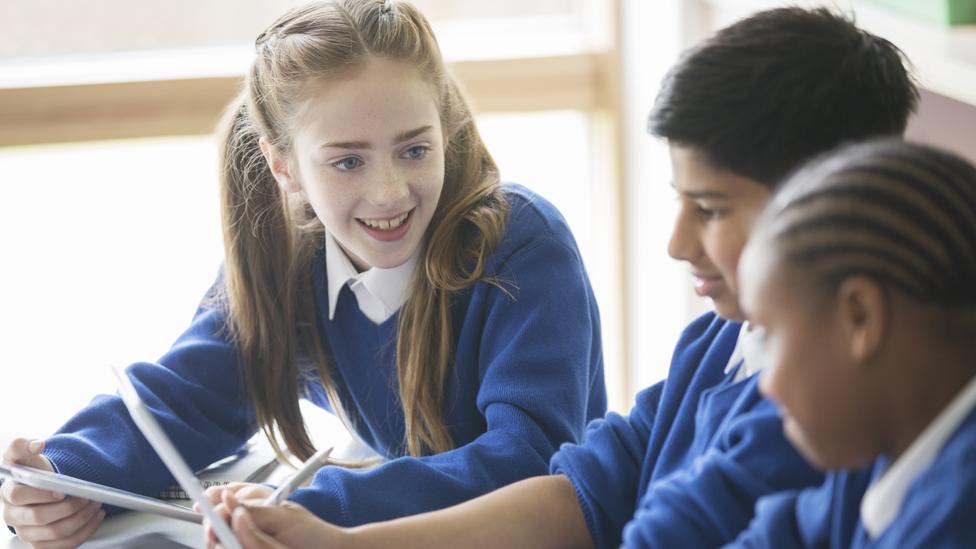No progress made in teachers' strikes talks
- Published
- comments

Mary Bousted, general secretary of the National Education Union, said no progress was made to resolve the dispute
More talks between government officials and unions have taken place as schools prepare for teachers' strikes.
However, unions say there was no discussion of an increased pay offer.
Schools Minister Nick Gibb said the six-hour meeting between the two sides was to discuss "pay but also other issues such as workload and the conditions of teachers in schools".
Earlier this week, teachers from the NEU union voted in favour of strike action in England and Wales.
They are preparing for their first national strike day on 1 February. National and local strikes in Scotland have already begun.
Following the meeting, Mary Bousted, general secretary of the NEU, said: "We're no further forward in resolving the dispute.
"We didn't get any indication that there was any money available for this year."
Ms Bousted said discussions were now taking place "which we should have had years ago" and that concerns about pay, workload and teacher retention seemed "to be accepted" by the officials.
"They will have to work out what they can do to offer us a better deal, so that we don't have to take strike action on 1 February," she said.
"It's not something we want to do at all, but ministers have to now engage seriously and have to begin negotiating."
Mr Gibb told the BBC that the government was negotiating with teachers but said there were concerns about "inflation-busting pay settlements" that would mean embedding inflation into the economy "for the long term".
A Department for Education spokesperson described Friday's talks as "constructive" and said strike action would be "highly damaging" to schoolchildren.
In England, head teachers will decide whether their school needs to close on strike days.
Teachers do not have to stick to the curriculum on strike days, according to government guidance., external So children could face changes to their lessons even if schools stay open.

Principal Tyrone Myton says he is hoping to keep his school open
Tyrone Myton, the principal of Shirley High School in Croydon, south London, is currently trying to get a picture of what strike action might look like in his school.
He wants to keep the school open on strike days but as union members do not have to declare whether they are striking, he says it is difficult to plan ahead.
Mr Myton says it is important to prioritise vulnerable pupils, ones whose parents work in the public sector and those in an exam year.
"We are trying to take steps to minimise disruption for students who are sitting exams in 10 weeks' time, and some have already started exams," he explained. "This is for the rest of their lives, so you have to do all you can."
He says he hopes there will be an agreement soon but believes that in order to prevent further strike action by teachers, better pay for new teachers and support staff must be addressed.

Sarah Smith is worried about her children having additional time off school
Sarah Smith, from Wharfedale in Yorkshire, runs a parenting website called Mumbler, which gives families information on things to do in the area.
She has two children, one in primary school and one in secondary, and her partner works full-time.
Ms Smith is worried about her children having more time off school following the pandemic, and says there are already "gaps in their knowledge".
"The schools are already working really hard to catch them up but additional time off is going to make it even more difficult for them," she adds.
Ms Smith says on strike days, if the schools close, she will have to stay at home to do some home learning with the children and then wait for her partner to get home so she can work late into the evening.
She said she could understand teachers' point of view, but her main concern is for her children's education.
The NASUWT union, which did not meet the legal threshold for strike action in its ballot, has sent guidance, external to its members on what they should do on strike days.
It says members are required to report for work but should not cover the work of colleagues, and should not agree to undertake online teaching to pupils from home if the school closes.
Related topics
- Published15 April
